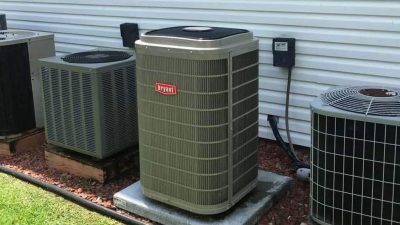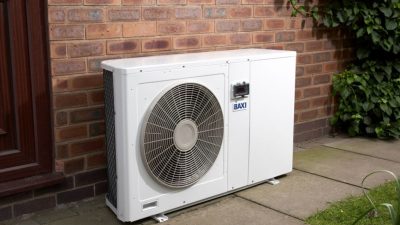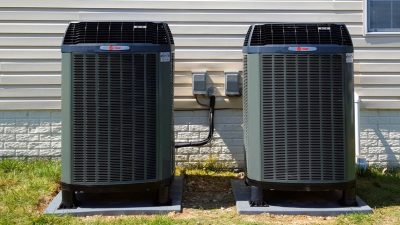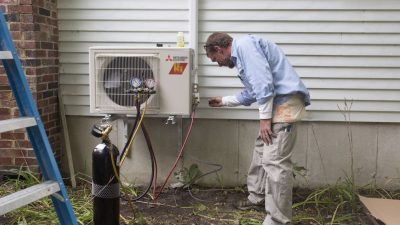We live in an age of innovation. Everywhere we look, we see people striving to make life easier and more efficient by embracing new technologies. One such technology is the heat pump, a device that harnesses the power of nature to provide heating and cooling for homes and businesses. But does this revolutionary device use water? Let’s find out!
In this article, we’ll explore how heat pumps work and what role water plays in the process. We’ll also look at how a heat pump can provide energy-efficient heating and cooling without using any water whatsoever. Finally, we’ll discuss some potential drawbacks of using a heat pump with a water source and how to avoid them. So if you’re curious about what it means for your home or business to use a heat pump, stay tuned!
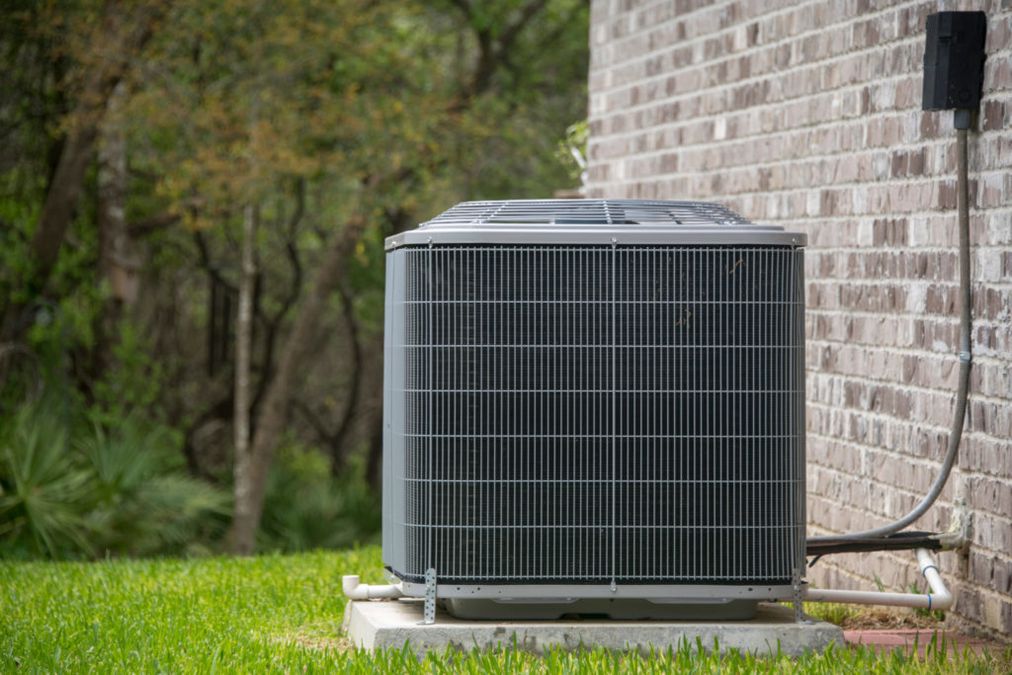
Does Heat Pump Use Water
Heat pumps can use water as a heat exchange medium in certain types of systems, but not in all heat pump systems.
Water-source heat pumps are a type of heat pump system that uses water as a heat exchange medium. These systems typically use a closed-loop piping system that circulates water from a water source, such as a lake, river, or well, to exchange heat with the heat pump. The water is not consumed in the process and is typically returned to the source after the heat exchange.
Ground-source heat pumps, also known as geothermal heat pumps, are another type of heat pump system that can use water as a heat exchange medium. These systems use pipes buried in the ground to circulate a water and antifreeze solution through the ground, exchanging heat with the earth. The water is not consumed in the process and is typically returned to the ground after the heat exchange.
Air-source heat pumps, the most common type of heat pump, do not typically use water as a heat exchange medium. Instead, they use refrigerant to transfer heat between the indoor and outdoor units of the heat pump.
It’s important to note that while water-source and ground-source heat pump systems can be highly efficient and cost-effective, they require specialized installation and are not suitable for all homes or locations.
Types Of Heat Pumps
Heat pumps are an efficient and cost-effective way to heat your home. There are four main types of heat pumps – geothermal, air-source, hybrid, and split-system ductless. Each type has its own advantages and disadvantages which need to be considered before making a purchase decision.
Geothermal heat pumps are the most efficient type of heat pump. They use the Earth’s natural temperature to provide heating or cooling for a home. They also require less energy than other types of heat pumps, making them an ideal choice for those looking to reduce their energy costs. However, installation can be costly and may not be suitable in all areas due to soil conditions or other environmental factors.
Air-source heat pumps draw outside air into the home and use it to provide heating or cooling as needed. These are generally more affordable than geothermal units but also less efficient, so they may not be the best option if you’re looking for maximum efficiency.
Hybrid systems combine traditional heating systems with a heat pump to provide both heating and cooling capabilities. These systems offer greater flexibility than geothermal or air-source systems but can also be more expensive up front.
Split-system ductless heat pumps are great for smaller spaces like apartments or condos where space is limited. They consist of two parts – an outdoor unit that pulls outside air into the home, and an indoor unit that distributes it throughout the living space. These units can provide both heating and cooling while requiring minimal installation effort, making them a great option for those who want convenience without sacrificing efficiency or comfort.
No matter what type of heat pump you choose, it’s important to consider all your options carefully before making a decision so that you end up with a system that meets your needs and provides comfortable temperatures at an affordable price point year round!
Advantages Of Water-Source Heat Pump Systems
Heat pumps are an innovative way to heat and cool your home, but did you know that some of the most efficient pumps use water? Water-source heat pumps offer a host of advantages, from energy efficiency and cost effectiveness to environmental impact.
Water-source heat pump systems are incredibly efficient with their energy usage, often surpassing other forms of heating and cooling systems. This means that homeowners can enjoy greater savings on their utility bills while still enjoying comfortable temperatures in their homes. Additionally, water-source systems require less maintenance than traditional air-source heat pumps because they don’t need to be cleaned or serviced as often.
The cost-effectiveness of water-source heat pumps also makes them a great option for those who want to save money. Because these systems use existing water sources like wells or rivers, they don’t require expensive installation or additional equipment, making them more affordable than other heating and cooling options. And, since they operate at lower temperatures compared to air-source systems, they don’t consume as much energy either – making them even more cost effective in the long run.
Finally, the environmental impact of water-source heat pumps is minimal compared to other forms of heating and cooling units. These types of systems rely on renewable sources like solar energy instead of burning fossil fuels like natural gas or oil – reducing carbon emissions and helping to protect our planet’s resources. Plus, since they do not generate noise pollution like many traditional HVAC systems do, they are much quieter and won’t disturb your neighbors.
No matter what type of home you have, there are many benefits associated with choosing a water-source heat pump system over other forms of heating and cooling solutions. From improved energy efficiency to lower costs and reduced environmental impact – these types of systems are an excellent choice for any homeowner looking for an alternative way to keep their home comfortable year round.
How A Water-Source Heat Pump Works
Water-source heat pump systems are an efficient way to convert energy from one source to another. Using a working principle that’s similar to a refrigerator, these pumps take advantage of the temperature difference between water sources and the air around us. This is done by transferring heat from one source – such as a lake or river – to another source inside your home or building. The result is high efficiency in energy conversion and lower energy costs for you.
The process begins with a fan that draws in outside air and passes it through an evaporator. This absorbs heat from the air, which is then transferred to the water source, cooling the air even further. The cooled water is then pumped back into your home or building, where it provides gentle warmth throughout your space. Heat pumps also help maintain consistent temperatures in your living space, making them more efficient than traditional heating systems.
Water-source heat pumps are an excellent way to reduce energy costs while providing consistent comfort in any environment. With its low maintenance requirements, low running costs, and long life span, this system can be a great choice for anyone looking for cost savings and improved energy efficiency!
Operating Costs And Maintenance Requirements
When it comes to operating costs, a water-source heat pump does not require high investments. In fact, installing a water-source heat pump can actually reduce energy bills due to its efficiency. While the initial installation of a water-source heat pump can be costly, the long-term savings on energy bills can make up for the initial investment. Furthermore, regular maintenance requirements are relatively low and involve checking the system’s controls and components, as well as keeping an eye on the water circulation system.
In terms of maintenance costs, it is important to note that regular checkups are necessary in order to keep your heat pump running efficiently. This includes inspecting the system’s controls and components such as filters and pumps. Also, it is important to make sure that there is adequate water circulation in order to ensure proper operation of your heat pump. The cost of these regular checkups should be taken into consideration when looking at total costs associated with owning a water-source heat pump.
Overall, when weighing up the benefits and drawbacks of a water-source heat pump’s operating costs and maintenance requirements, it is clear that this type of heating system offers many advantages over other types of systems. With its energy efficiency and low maintenance costs, installing a water-source heat pump could be beneficial for homeowners looking for ways to save money on their energy bills in the long run.
Environmental Benefits Of Using A Water-Source Heat Pump
Using a water-source heat pump offers many benefits to the environment. With its high efficiency, it can help to reduce energy use and save money. The heat pump utilizes water as a source of heat, which means that it does not need to draw on traditional energy sources like natural gas, oil or electricity. This results in fewer emissions being released into the atmosphere and a lower environmental impact. Additionally, because water-source heat pumps are designed with efficient thermal storage technologies, they are able to capture and store more energy than other types of systems. This means that they can provide sustained heating over long periods of time without depleting resources or emitting excessive amounts of pollutants.
In addition to its environmental benefits, using a water-source heat pump also has economic advantages. By reducing energy use, you can reduce your dependence on costly fuel sources while still maintaining comfortable temperatures throughout your home or business. Furthermore, due to their low maintenance requirements, water-source heat pumps can offer long-term savings when compared to other forms of heating and cooling systems. All these factors combine to make this an attractive option for anyone looking for a way to save money and contribute positively towards the environment.
Conclusion
In conclusion, a heat pump is an efficient way to heat and cool your home while being gentle on the environment. It works by transferring heat from one place to another instead of creating heat like a traditional furnace does. Water-source heat pumps are the most efficient type of heat pump systems, allowing for a more cost-effective solution than other types of heating and cooling systems. They work by using water as a source of energy for their operation, which is why they are often referred to as “water-source” systems. The advantages of these systems include lower operating costs, easier maintenance requirements, and environmental benefits such as reduced emissions. All in all, if you’re looking for an efficient way to keep your home comfortable without putting too much strain on your wallet or the environment, then water-source heat pumps may be the right choice for you.

